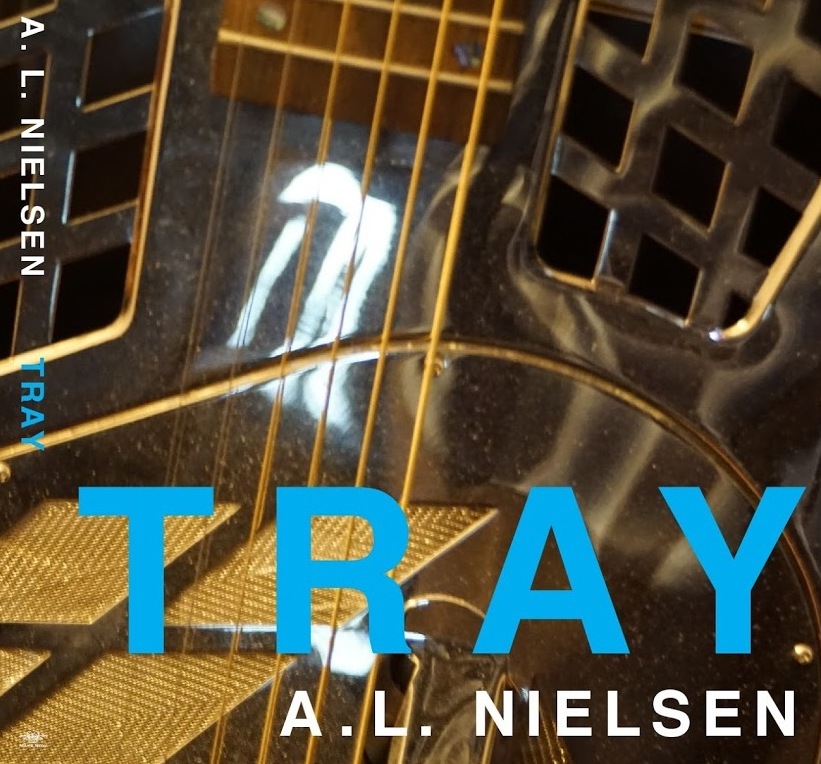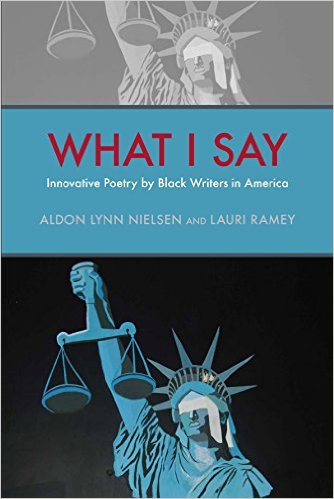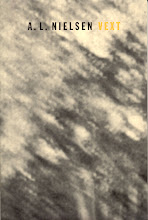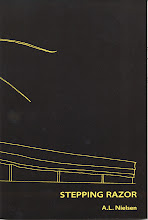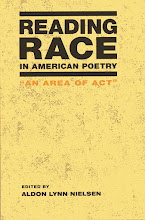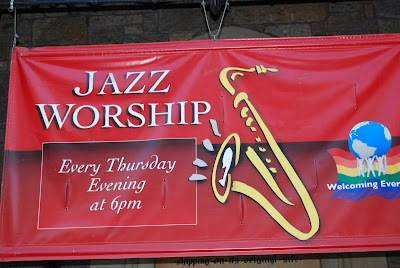

 well . . . literal minded in Boston, I'd thought I'd stumbled into a place that worshiped jazz; turns out they just used jazz in their worship . . . but still . . .
well . . . literal minded in Boston, I'd thought I'd stumbled into a place that worshiped jazz; turns out they just used jazz in their worship . . . but still . . . That made a fine backdrop to the meeting of the ALA.




 Among the new features at this year's conference, new author societies devoted to the works of Paul Laurence Dunbar and Pauline Hopkins.
Among the new features at this year's conference, new author societies devoted to the works of Paul Laurence Dunbar and Pauline Hopkins.




 An exciting development this year for those of us in poetry studies in addition to a Dunbar Society, the appearance of a new society that takes as its object of study the work of the New York School of poets.
An exciting development this year for those of us in poetry studies in addition to a Dunbar Society, the appearance of a new society that takes as its object of study the work of the New York School of poets.





Each year at the conference, the African American Literature and Culture Society presents the Stephen Henderson Award for contributions to the literary arts. This year's award went to Elizabeth Alexander, who had read at an ALA panel in San Diego many years ago alongside Sherley Anne Williams, with a critical response from Marcellus Blount. Elizabeth read at the Obama Inauguration back in January and we had the bilingual edition of her poem on hand for the eager readers of the ALA. Back in 1986, Elizabeth was a winner of the Larry Neal Award. The first Larry Neal winner for poetry, in 1983, was one A.L. Nielsen. It was a distinct pleasure to share a podium with her on this occasion.




 Among the new features at this year's conference, new author societies devoted to the works of Paul Laurence Dunbar and Pauline Hopkins.
Among the new features at this year's conference, new author societies devoted to the works of Paul Laurence Dunbar and Pauline Hopkins.



 An exciting development this year for those of us in poetry studies in addition to a Dunbar Society, the appearance of a new society that takes as its object of study the work of the New York School of poets.
An exciting development this year for those of us in poetry studies in addition to a Dunbar Society, the appearance of a new society that takes as its object of study the work of the New York School of poets.
















